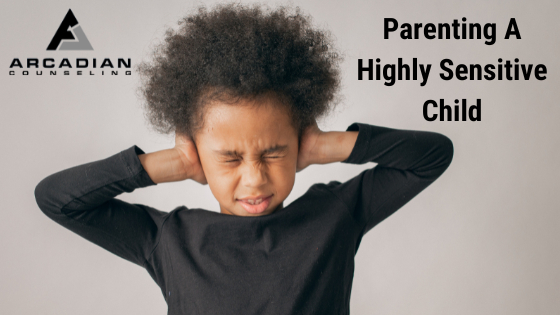If your child is sensitive to the emotions of others, worrisome and easily overwhelmed by changes, new people or environments, you may be parenting a highly sensitive child. Parenting can be demanding, and parenting a highly sensitive child presents additional challenges. However, with a few simple strategies, you can better manage everyday problems and create a more peaceful home for the both of you.
Change Your Viewpoint
First, it’s important to change your viewpoint. Your initial reaction might be to see your highly sensitive child’s special needs as a detriment, rather than an asset. However. highly sensitive children tend to be more creative, insightful and empathic. With proper guidance and support, your child will grow into a happy and well-adjusted, conscience, and considerate adult.
Parenting a highly sensitive child
1. Encourage & Praise

All children need praise and encouragement, but if you’re parenting a highly sensitive child, you may need to dish it out even more.
Highly sensitive children maintain their sensitivity into adulthood. Therefore, it’s crucial they learn as children to embrace and manage their emotions. Being shamed for their sensitivity could cause them to develop anxiety and depression as they age.
Validate your child’s feelings by encouraging him to express himself, and listen when he speaks. Encourage your child to manage his emotions rather than suppress them. Don’t ask or expect your child to “toughen up.” Your sensitive child will also benefit from praise on a job well done as this will help him develop confidence in himself. This goes for all children too, by the way.
2. Help Them Prepare
Sensitive children can become easily overwhelmed by new environments and people so a little preparation can go a long way for the both of you. For example. if your child is headed to a new classroom. prepare her a week or so in advance by visiting the school, playing in the playground and meeting some of the teachers. Give her a chance to express some worries or fears she may have and reassure her that it’s natural to feel a little anxious, and that the other children are nervous as well.
3. Create a Safe Space

All children need a safe space they can escape to when they’re feeling overwhelmed and highly sensitive children are no exception.
It’s usually important for highly sensitive children to retreat to a quiet place where they can be alone with their thoughts. Their safe space can be a literal space you’ve created, or it can be as simple as a container of crayons, blank paper and their favorite stuffed animal in a quiet area of the house. Whatever it is, encourage it, honor it, and never threaten to “take it away” as a form of punishment.
4. Get Involved

Parenting a highly sensitive child may require more involvement on your part than other kids, but the payoff is well worth the investment.
If you notice that your child tends to isolate or have more difficulty in social situations than other children, try volunteering for field trips or as an occasional recess or lunch monitor. Encourage them to participate by interacting with the other children. When he sees you having fun, he’s more likely to go from observing to participation. With love and gentle guidance, your highly sensitive child will develop confidence and self-acceptance that will carry him into adulthood.
Life is short, but parenting isn’t. If you’re struggling to figure out how navigate the ups and downs of parenting a highly sensitive child, find an awesome therapist your like and trust to help you navigate the unknown.
James Killian, LPC is the Principal Therapist & Owner of Arcadian Counseling in Greater New Haven, CT where they specialize in helping over-thinkers, high achievers, and perfectionists reduce stress, increase fulfillment and enhance performance so they can move From Surviving To Thriving.


